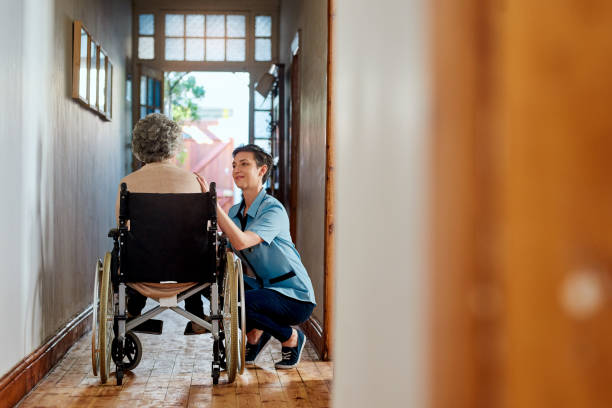Recovering after a hospital stay—whether from surgery, illness, or injury—requires more than just rest. It demands consistent care, close monitoring, and an environment conducive to healing. In recent years, home health care has emerged as the preferred choice for post-acute care, providing patients with professional medical support in the comfort of their own homes. This model not only supports faster recovery but also aligns with the changing landscape of patient-centered healthcare.
Contents
- 1 The Shift from Hospital to Home: A New Era of Recovery
- 2 Clinical Benefits: Professional Care Without the Institutional Feel
- 3 Personalization and Continuity of Care
- 4 Economic Efficiency: Reducing Costs Without Cutting Quality
- 5 Supporting Mental and Emotional Health
- 6 Empowering Family Involvement
- 7 Meeting Modern Healthcare Demands
- 8 Conclusion: The Smart Path Forward
The Shift from Hospital to Home: A New Era of Recovery
Traditionally, post-acute care took place in skilled nursing facilities, rehabilitation centers, or long-term care institutions. However, patient preferences and outcomes have shifted the tide. Many individuals now opt for home health care services after discharge due to the personalized attention, convenience, and emotional benefits it offers.
Data shows that patients recovering at home often have lower rates of rehospitalization and infections compared to those in institutional settings. The comfort of familiar surroundings, coupled with the presence of loved ones, creates a setting that promotes healing, both physical and emotional.
Clinical Benefits: Professional Care Without the Institutional Feel
Home health care isn’t just about basic support; it delivers skilled medical services tailored to individual needs. These include wound care, medication management, physical therapy, post-operative monitoring, and chronic disease management. Registered nurses, licensed therapists, and trained aides bring the same level of clinical expertise you’d find in a hospital, just without the sterile atmosphere.
This customized, one-on-one attention allows clinicians to monitor subtle changes in a patient’s condition and respond more quickly, potentially preventing complications. For patients with mobility issues or compromised immune systems, staying out of shared facilities also reduces the risk of hospital-acquired infections.
Personalization and Continuity of Care
Unlike traditional care facilities that operate under rigid schedules and policies, home health care offers flexibility and personalization. Providers can design care plans that align with the patient’s daily routines, dietary preferences, and family support systems.
Moreover, the continuity of having the same caregivers visit regularly builds trust and improves communication between patients and providers. This familiarity enables more effective care delivery and encourages patients to be more engaged in their recovery.
Economic Efficiency: Reducing Costs Without Cutting Quality

Hospital stays and inpatient rehab centers are expensive. With healthcare costs on the rise, families and insurers are increasingly turning to home health care as a cost-effective alternative. Home care significantly reduces the financial burden associated with long-term facility stays, particularly for those managing chronic conditions that require extended recovery periods.
Medicare, Medicaid, and most private insurance plans now recognize the efficacy of home health services and offer comprehensive coverage for eligible patients. When combined with better outcomes and lower readmission rates, home health care stands out as an economically smart solution.
Supporting Mental and Emotional Health
Post-hospitalization recovery isn’t just physical—it involves mental and emotional resilience. Home care allows patients to remain close to their families, pets, and personal comforts, which plays a significant role in mental well-being.
Feelings of anxiety, confusion, or depression are common after major medical events, particularly in older adults. Being at home minimizes the sense of isolation often experienced in institutions. With access to companionship and emotional support from caregivers and loved ones, patients feel more secure and motivated throughout the healing process.
Empowering Family Involvement
Another major advantage of home health care is its collaborative nature. Family members often play an active role in the patient’s care, gaining firsthand insights into medications, treatments, and progress. This transparency empowers families to better advocate for their loved ones, provide supplementary support, and maintain open lines of communication with healthcare providers.
Care teams also educate families on how to manage ongoing conditions, perform wound care, or administer medications. This partnership not only improves outcomes but also strengthens the patient’s support network.
Meeting Modern Healthcare Demands
In an era where convenience and personalization are becoming benchmarks for quality service, home health care stands out as a forward-thinking solution. It aligns perfectly with the goals of modern healthcare: delivering value-based, patient-centered care that adapts to individual needs while maintaining high clinical standards.
Advances in telehealth and remote monitoring are further enhancing home care delivery, allowing clinicians to track patient vitals, adjust treatment plans, and conduct virtual check-ins with ease. This integration of technology ensures safety, efficiency, and timely interventions, particularly for those in remote or underserved areas.
Conclusion: The Smart Path Forward
Choosing home health care for post-acute recovery is not merely a trend—it’s a strategic decision rooted in compassion, clinical excellence, and common sense. It offers a seamless transition from hospital to home, combining medical expertise with the healing power of comfort and familiarity.
As the healthcare industry continues to evolve, prioritizing convenience, affordability, and patient satisfaction, home health care is leading the way. For individuals recovering from hospitalization, it remains one of the smartest choices they—or their families—can make.

